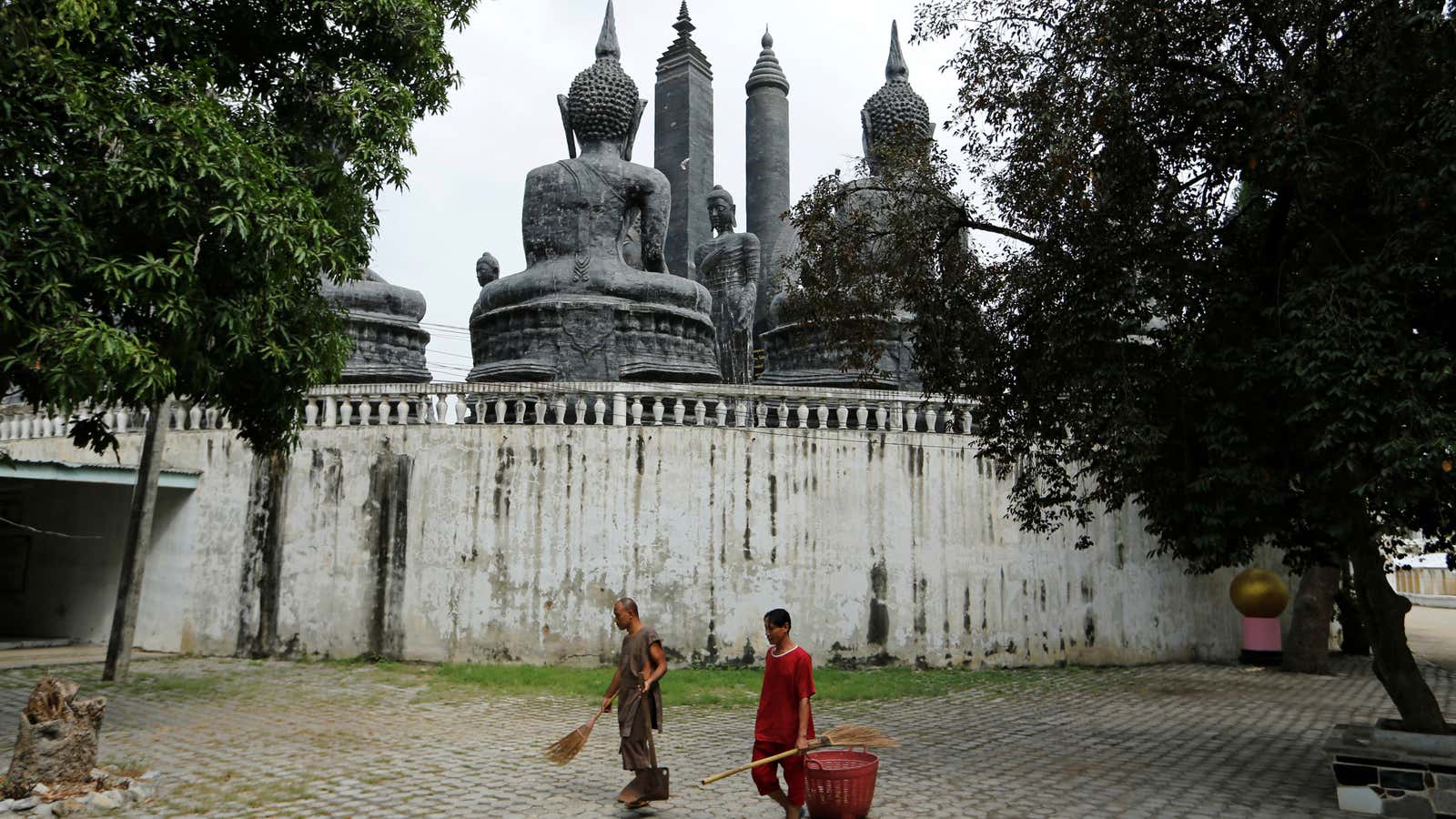You are cordially invited to the most important event of the season: A cleanup.
Tidying spaces is a great way to create order at work, at home, and in your head, and you needn’t do it alone, according to the Japanese Zen Buddhist monk Shoukei Matsumoto. In his self-help book, A Monk’s Guide to a Clean House and Mind—a best-seller in Japan, published in English in January 2018—he advises cleaning as a road to illumination, both alone and in groups.
Scrubbing is an inexpensive and utilitarian form of therapy, plus a contemplative practice. Tidying with family, friends, and even strangers can help us achieve outer and inner peace, Matsumoto believes. “Clean the lamps and fixtures gently, as if you are polishing your heart and soul to make them shine their brightest,” he writes.
The monk is a member of the Komyoji Temple in Tokyo. Twice a month, he invites people to join him as part of the temple’s cleanup crew. The gathering draws a diverse crowd, including JJ O’Donoghue, who wrote about it in The Japan Times on May 5. Apparently, even the CEO of a Tokyo Stock Exchange-listed company once showed up with workers for a contemplative scrub session.
After the sweeping, the cleaners have tea and chat. For Matsumoto, the act of cleaning is much more than a chore. It’s a spiritual practice that can unite people and ensures psychological health. He writes:
We sweep dust to remove our worldly desires. We scrub dirt to free ourselves of attachments. We live simply and take time to contemplate the self, mindfully living each moment. It’s not just monks who need to live this way. Everyone in today’s busy world needs to do it.
Matsumoto is a rather postmodern monk. He has an MBA from the University of Hyderabad in India and founded a digital temple, called Higan-ji, using new media to convey traditional Buddhist precepts. Invitations to the temple cleaning are issued on Twitter.
The monk isn’t dogmatic about religion—just sweeping, scrubbing, and polishing. He does, however, appear to seek converts to his faith that cleaning your external space can have internal benefits, too.
Matsumoto believes that cleaning can even strengthen our relationships. “This book will improve the condition not just of your own mind, but also the people around you,” he promises.
His guide is about more than tidying—it offers a positive approach to taking on seemingly tedious tasks, revealing the depth in superficial acts. The slender text was originally written as a training guide for young Japanese monks. But Matsumoto hopes readers internationally come to see creating order in the spaces we occupy and share as a force for good, a daily activity to be embraced rather than shirked. He told the Japan Times, “[I]f you can change your recognition of cleaning from something that’s negative to something that’s positive, then your quality of life will improve.”
